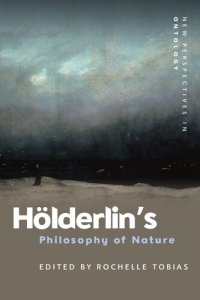
Ebook: Hölderlin's Philosophy of Nature
Author: Rochelle Tobias (editor)
- Series: New Perspectives in Ontology
- Year: 2020
- Publisher: Edinburgh University Press
- Edition: 1
- Language: English
- pdf
Shows the relation between Hölderlin’s poetic theory and his concept of nature as developed in his poetry, prose and dramatic works
- Analyzes Hölderlin’s cosmology and its relation to his conception of the divine
- The first collection to interpret his work within the context of the philosophy of nature
- Offers unique models for understanding the intersection of literature and philosophy
- Places ecological thought in dialogue with German Romanticism and Idealism
- Highlights the ontological significance of aesthetic categories (e.g. meter, harmony, discord and tragedy) in Hölderlin’s work to explain the role poetry plays in the history of being
In our age of climate change, the work of the decidedly philosophical poet Friedrich Hölderlin has gained renewed urgency with its emphasis on the forces of nature that produce life and at the same time threaten to devour it. At the heart of his work lies an understanding of nature and the role that consciousness plays within it. This responds to, but also revises, the concerns of 18th and 19th-century philosophy of nature.
This collection of 15 essays by distinguished international scholars reconsiders what his work reveals about the impulses toward form and formlessness in nature and the role that poetry plays in creating Hölderlin’s ‘harmonious opposition’. The collection shows that Hölderlin anticipates many of the concerns that motivate contemporary environmental thinking.